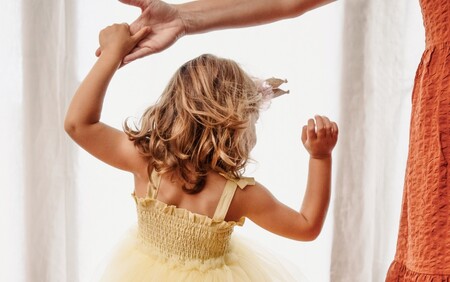Donating Eggs
Life. Pass it On.
Thousands of Australians are waiting for egg donors to help them grow their family.
Enquire today about donating your eggs to a family in need.
Donate the moments of motherhood.
Egg donation is an incredible gift, and can help someone achieve their dreams of parenthood.
For women who are unable to conceive using their own eggs, using donor eggs can offer their only chance to have a baby. Eggs may be donated anonymously by women who have completed their own families and now wish to help others, or are often donated by a family member or friend.
If you are unable to conceive using your own eggs, find out more about using donor eggs through Queensland Fertility Group.
Enquire Today
Egg Donation Process Explained
Why donate my eggs?
Women of all ages and general health can find it difficult or impossible to conceive. For example, they may undergo premature menopause, be affected by chemotherapy or radiotherapy, or have problems with their ovaries. Egg donors give these women the chance to achieve pregnancy and have children. Egg donation can also help same sex male couples achieve their goals of parenthood.
Egg donors are often some couples' only chance to have children, which is why it is one of the most generous gifts you can give.
Who can be an egg donor?
Ideally, egg donors should be between 21 and 35, and have completed their own family.
Egg donation laws in Queensland
As part of the egg donation process, each couple signs a consent form for use of the donor eggs. Under Queensland state legislation, the birth parents registering the birth of a child resulting from a donated egg (or sperm) are considered to be the legal parents of the child. The egg donor (as with a sperm donor) has no legal rights or responsibilities towards the child.
Queensland Fertility Group keeps separate records of all donors, recipients and successful births. This record protects donors and any children arising from use of their eggs, and is not accessible to other parties or Government agencies. This is different from some other states, which have a register of donors and offspring.
Will my identity as an egg donor be released?
When you donate eggs anonymously (as opposed to someone you know) we will never give out information that identifies you as the donor. We may, however, disclose non-identifying information about you for example physical characteristics like height and weight, or things like your interests, job type, or education.
Information that identifies you is not available to egg recipients at any stage, but it is available on request to the resulting child once they have turned 18.
Similarly, we don’t disclose information to you about the recipients of your eggs, but the outcome of the egg donation – whether the recipient's pregnancy was successful or not – is available to you on request.
Will I be paid to donate my eggs?
Australian legislation prevents payment for any human tissues, so donors cannot gain financially from egg donation. However, the donor is reimbursed for out-of-pocket expenses incurred pertaining to the donation process.
What is involved in donating eggs?
Your initial contact will be with an Oocyte (Egg) Donation Coordinator, who will check you fulfil the criteria to become a donor. If you are suitable, we will then briefly describe what to expect, so you can decide whether you still wish to continue.
Egg donation involves daily injections for 10-12 days to stimulate ovulation, and an ultrasound-guided surgical egg collection under general anaesthesia. Also, blood tests are required before, during and after donations.
Initial consultation with the Oocyte Donation Coordinator
This initial visit can take up to two hours, and involves a more detailed explanation of the procedures involved in ovarian stimulation and egg collection. It is important you understand and are comfortable with every aspect of the process before going ahead, but if at any time during the screening process you find you are uncomfortable with proceeding, you are under no obligation to continue.
The consultation also includes taking blood samples to check for infectious diseases, chromosomal abnormalities and determine your Cystic Fibrosis carrier status.
Fertility Specialist consultation
Following your initial appointment with an Oocyte Donation Coordinator, you will then have a medical consultation with one of our Fertility Specialists. The Specialist will ask about your medical history, discuss egg donation, explain to you the medical aspects of the procedure, and answer any questions you may have.
Counsellor consultation
A number of social and emotional issues can arise from egg donation. Understanding and considering these issues before donating eggs ensure you are informed and prepared. At Queensland Fertility Group, you must have a counselling session with a qualified fertility counsellor before treatment begins. You can also access counselling services at no cost at any time during egg donation with us.
How and when to donate
The next step is to book in for a treatment cycle. This will involve hormone stimulation through a course of injections, and an ‘egg pick-up’ that requires a short day-surgery procedure under light general anaesthetic.
What happened to the eggs I donate?
Once your eggs are collected, they are prepared for fertilisation with the recipient’s partner’s sperm. Any eggs collected from your donation will be donated to one recipient only.
Post-collection consultation
We'll contact you again six months after the egg donation to obtain another blood sample for infectious disease screening. If you wish, we can also tell you if your recipient becomes pregnant, and the outcome of your generous donation, although this may not be for up to a year after your donation.
To find out more about egg donation, fill in the form below. We'll be in touch to explain the process of donation at Queensland Fertility Group.
Find out more about QFG's donor programme...
Select a QFG Fertility Specialist...
Find a QFG clinic near you...
